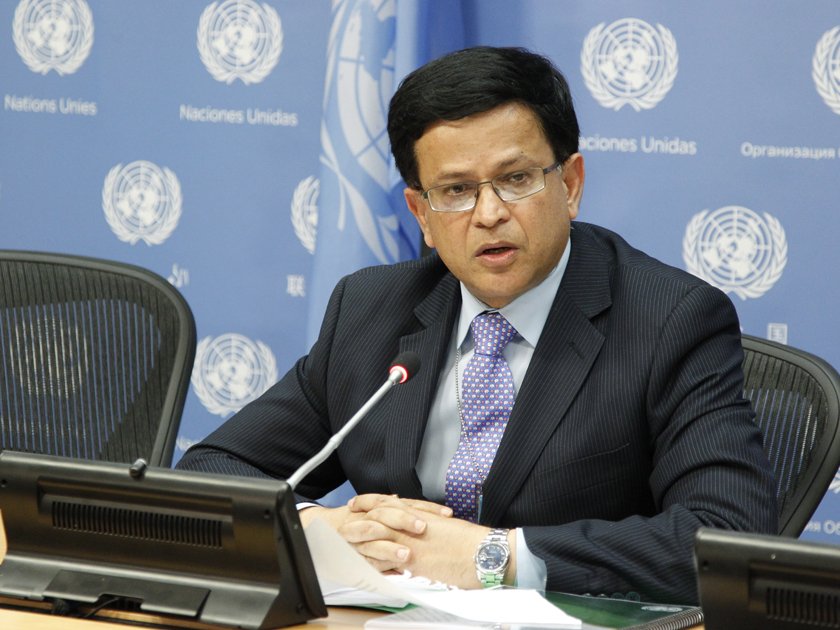The vision set out in the UN’s Sustainable Development Goals (SDGs) is linked to the outcome of the climate change conference in Paris, said Nikhil Seth, Executive Director of the United Nations Institute for Training and Research (UNITAR). Without a climate change agreement, the SDGs will not be achievable.
Mr. Seth, the former head of the secretariat for the intergovernmental negotiations on the SDGs, said that a challenge facing the Paris agreement will be getting financing right. Unless poor countries are helped in realizing the mitigation and adaptation to climate change, how will you expect them to do it?” he said.
Mr. Seth spoke to International Peace Institute Senior Adviser Warren Hoge, on the margins of the ICM’s eighth retreat, on sustainable development, climate change, and the post 2015-agenda, held on November 20-21.
Nikhil Seth, we’ve just had a long conversation here among a number of people, which began on a note of some celebration, or some congratulation, in that the SDGs are something that people are quite proud of now. Somebody even said, “Finally, we got it right.” And you brought us back to the reality that now we’ve got to implement it, talking in particular of integration—a lot of people in the room then translated that into “breaking down silos.” Could you explain that further?
Integration is essentially integration of policy, and that reflects the ministerial structure, for example, of governments. All issues are done by different ministries—very few countries have systems where ministries sit together and make policy decisions together. For example, you make decisions on water, energy, food, and climate in separate ministries and that is not logical.
What the new agenda is asking countries to do is to help bring all of government approaches to solve policy problems. But integration also means you get the views from academia, civil society, the business sector. Unless you integrate all these actors into decision-making, we will not get it right.
The world now is about to cast its eyes on the upcoming climate change meeting in Paris and the UN will be tested again as to whether it can pull off something. We all remember Copenhagen, which was a disappointment in the end. What is your expectation this time? And particularly, coming after the success in achieving the SDGs, will that give momentum which could produce a much better result in Paris?
Ambition of the SDGs has to be matched by ambitions in Paris. Without that ambition, we will not be able to achieve the SDGs because all the actions that we expect in the SDGs will really determine what the future of the world climate system is going to be.
The big transitions we need are in agriculture, energy, sustainable cities, consumption and production, and in water. And the SDGs show the agenda; the pathway to make that happen for the first time.
I’ve been in the negotiation process of climate change for over 24 years, and once again I feel we are getting it right. It is not a coercive determination of everyone’s legal obligations on many of these issues. It’s a voluntarily determined process, so that gives me hope that if countries themselves are promulgating what they’re going to do on the issue of climate change mitigation, then they will be honored to commit to what they are promising to do.
It’s not as if it’s part of some international agreement for everyone to follow the same targets or goals. It’s a voluntary process on mitigating climate change. So I feel optimistic that countries who are voluntarily saying what they plan to do will actually go ahead and implement it, but I worry also about the other parts of this package, especially on the finance and technology. Unless poor countries are helped in realizing the mitigation and adaptation to climate change, how will you expect them to do it? That’s the challenge: to match countries’ voluntary contributions to the level of commitment to implement them. This can be done by getting the financing and the means of implementation package right, especially for poor countries who will not be able to otherwise implement their promises.

